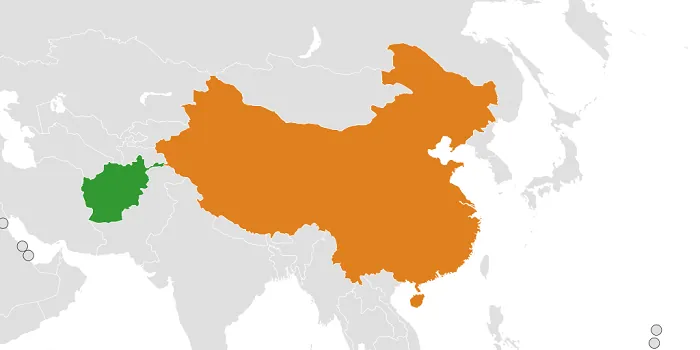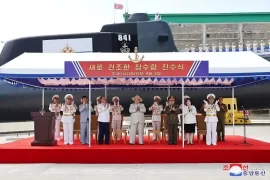The takeover of Afghanistan by the Taliban in 2021 brought significant changes to the political landscape of the country and has implications for its relations with other countries. Among these countries, China’s stance towards Afghanistan has been closely watched, given China’s economic and strategic interests in the region. As a neighboring country, China has been actively involved in Afghanistan’s peace and reconstruction process, and its approach towards the new situation after the Taliban takeover is multifaceted and comprehensive. This article will delve into the various aspects of Afghanistan-China relations in the aftermath of the Taliban takeover, using subheadings to highlight key points.
China’s Pragmatic Approach towards the Taliban
China has adopted a pragmatic approach towards the Taliban’s return to power in Afghanistan. While expressing concerns about the situation and calling for a peaceful and stable transition, China has refrained from interfering in Afghanistan’s internal affairs and has emphasized the principle of non-interference in other countries’ domestic affairs, which is a cornerstone of China’s foreign policy. China has stated that it respects Afghanistan’s sovereignty, independence, and territorial integrity and will continue to develop friendly relations with Afghanistan, regardless of the political changes.
Focus on Peace and Stability in Afghanistan
China has consistently emphasized the importance of peace and stability in Afghanistan. It has called for an inclusive political settlement that accommodates the interests of all Afghan parties, promotes national reconciliation, and upholds the rights and interests of women, ethnic groups, and other vulnerable groups. China has expressed support for all plans and measures that contribute to a political settlement of the Afghan issue and has actively engaged in regional and international coordination efforts to promote stability in Afghanistan. China has participated in various multilateral mechanisms and platforms, such as the Foreign Ministers’ Meeting on the Afghan Issue among the Neighboring Countries of Afghanistan, the Shanghai Cooperation Organization (SCO)-Afghanistan Contact Group, and the Moscow Format Consultations on Afghanistan, among others, to build consensus and synergy for peace and stability in Afghanistan.
Economic Cooperation and Development Assistance
China has a strong economic interest in Afghanistan and has been actively involved in economic cooperation and development assistance to the country. China has reiterated its commitment to continuing mutually beneficial cooperation with Afghanistan and supporting its reconstruction and development process. China has expressed readiness to work with the international community to provide humanitarian and development assistance to Afghanistan, including assistance in infrastructure construction, energy, transportation, and agriculture, among others. China’s Belt and Road Initiative (BRI), which aims to promote connectivity and economic development in the region, could potentially provide opportunities for economic cooperation between China and Afghanistan, with the latter serving as a key transit and trade hub between China and other countries in the region.
Security and Counter-Terrorism Cooperation
Security and counter-terrorism cooperation have been important aspects of Afghanistan-China relations. China has expressed concerns about the potential spillover of terrorism and extremism from Afghanistan to its own territory and the broader region. China has called for enhanced international cooperation in countering terrorism, separatism, and extremism, and has expressed readiness to strengthen coordination and cooperation with Afghanistan and other countries in the region to combat these threats. China has also called for avoiding double standards on counter-terrorism and not supporting or conniving at terrorism for the sake of advancing geopolitical agendas. China’s cooperation with Afghanistan in the areas of intelligence sharing, capacity building, and joint counter-terrorism exercises could potentially be strengthened in the aftermath of the Taliban takeover.
Humanitarian and Refugee Issues
China has expressed concern about the humanitarian situation in Afghanistan, including the plight of Afghan refugees. China has called on the international community to provide continuous humanitarian and development assistance to help Afghanistan rebuild its economy and create favorable conditions for the return of refugees and internally displaced persons (IDPs) to their homes. China has also expressed readiness to provide humanitarian assistance to Afghanistan and support efforts to address urgent humanitarian needs, including those arising from the current situation. China has called for ensuring the safety and security of humanitarian workers and facilities, as well as protecting the rights and interests of vulnerable groups, including women, children, and marginalized groups.
Diplomatic Engagement and Regional Cooperation
China has been actively engaged in diplomatic efforts to promote peace, stability, and development in Afghanistan through regional and international cooperation. China has maintained close communication and coordination with other neighboring countries of Afghanistan, including Pakistan, Tajikistan, and Iran, as well as with regional organizations such as the SCO, the Collective Security Treaty Organization (CSTO), and the Conference on Interaction and Confidence-Building Measures in Asia (CICA). China has also engaged in dialogue with other major stakeholders in the region, such as the United States, Russia, and the European Union, among others, to exchange views and coordinate positions on the situation in Afghanistan. China has advocated for a regional approach to the Afghan issue, which involves inclusive dialogue, consensus-building, and joint efforts to address common challenges.
Conclusion
China’s approach towards Afghanistan after the Taliban takeover is multifaceted and comprehensive, reflecting its pragmatic, peace-oriented, and cooperative foreign policy principles. China has emphasized the importance of peace and stability in Afghanistan, economic cooperation and development assistance, security and counter-terrorism cooperation, humanitarian and refugee issues, as well as diplomatic engagement and regional cooperation. China’s stance towards the Taliban has been based on non-interference in Afghanistan’s internal affairs and respect for its sovereignty, while advocating for an inclusive political settlement and safeguarding the rights and interests of all Afghan parties. As the situation in Afghanistan evolves, China’s role as a neighboring country and a key regional player will likely continue to be significant in shaping the dynamics of Afghanistan-China relations and the broader regional landscape.








